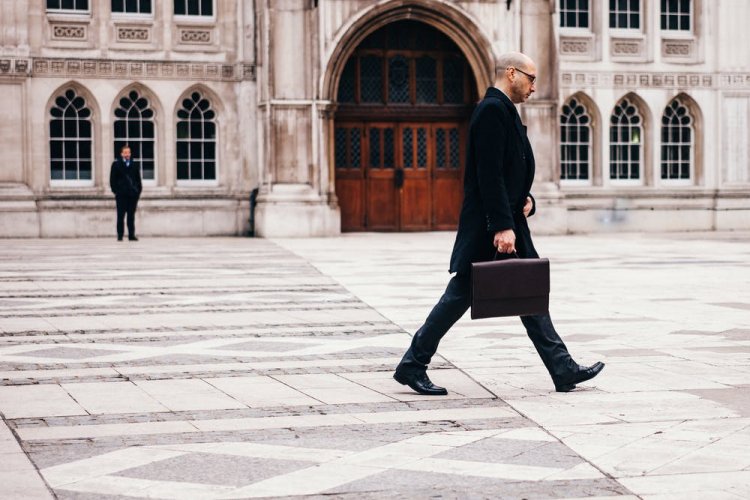Is Big Bird racist? In Sesame Place racial bias trial, a federal jury says no
Jurors rejected the families’ case that Sesame Place performers were motivated by racial bias when they ignored their children during park parades and “meet and greets” with characters.

Jeremy Roebuck | (TNS) The Philadelphia Inquirer
PHILADELPHIA — Two years after a viral video mired the Bucks County amusement park Sesame Place in a firestorm of racial controversy, a lawyer for families alleging their children had been discriminated against by the park’s costumed characters hurled a startling accusation in court.
“Big Bird, you’re a … racist,” attorney Martell Harris said, adding an expletive that would never be heard on Sesame Street and quoting a taunt once lobbed against one of the park’s young performers, as he questioned the man this week.
But when a federal jury took up the claims of the five Black and Hispanic families who had sued alleging their children had been ignored by their Sesame Street favorites because of the color of their skin, it ultimately disagreed with that assessment.
It took less than three hours for jurors to reject the families’ case that Sesame Place performers were motivated by racial bias when they ignored their children during park parades and “meet and greets” with characters.
Instead, the panel credited arguments from park lawyers who maintained race played no role in those decisions. They blamed the sheer size of the park’s crowds, the strict demands of parade choreography, and the cumbersome costumes with limited visibility performers must wear to bring Elmo, Big Bird, and other iconic Sesame Street characters to life.
“These young people were working at Sesame Place because they’re performers, not because they are racists,” park attorney Michelle Pardo said in court Thursday. “They play monsters at Sesame Place, but they are not the monsters.”
The trial’s claims of racial bias — and the pain described over hours of testimony from parents whose children left the park disappointed — were serious. But the proceedings, which played out over six days in a federal courtroom in Philadelphia, at times turned toward the surreal.
Sesame Place costumed characters pose at the Langhorne amusement park during “A Very Furry Christmas” weekend in December.
‘Are you a racist person?’
Lawyers debated one of the most weighty and sensitive topics in American life under the smiling, googly-eyed gaze of beloved Sesame Street Muppets, displayed on a courtroom monitor behind them.
Teenage park performers beat back allegations of discrimination as the costumed heads of the characters they portrayed — like Rosita, Baby Bear, and Telly Monster — sat perched beside them on the witness stand.
“Are you a racist person?” attorneys asked one young woman who regularly played the character Abby Cadabby in Sesame Place parades.
She offered a nervous reply: “No, I don’t think so.” Her pink-furred, pom-pom-haired, freckle-faced monster head sat in silence beside her, fixing jurors with a vacant, moon-eyed stare.
Harris, one of the plaintiffs’ attorneys, delivered portions of his closing argument Thursday while wearing the furry blue head of Super Grover over his more courtroom-appropriate business suit.
And the jury was bused up to the Langhorne amusement park at one point during the proceedings to try on the massive Big Bird costume for themselves.
“You can see directly in front of you, but not the full scope,” Dennis Brislin, a frequent Big Bird performer, later told the panel in his testimony this week, describing his limited view from the eye holes in his character’s necktie. “There are blind spots from the ground below you and everywhere around you.”
A social media controversy
That defense — that performers couldn’t possibly interact with all park attendees and were often prevented by their costumes from seeing clearly whom they were interacting with — has formed the backbone of Sesame Place’s response since its staff was first accused of racial bias in 2022.
That year, a video posted to social media — which appeared to depict an employee, dressed as the lovable turquoise monster Rosita, rebuffing high fives from two 6-year-old Black girls — went viral and provoked an immediate backlash.
Boycotts were proposed. Firings were demanded. The Rev. Jesse L. Jackson Sr. even showed up.
Hundreds of other parents surfaced with their own complaints of their children being passed over at the park because of the color of their skin.
The woman who posted that initial video — Jodi Brown of New York — was not a party to the lawsuit resolved by Thursday’s verdict. But the case grew out of the resulting firestorm.
The five plaintiff families hailed from New York, Pennsylvania, and Maryland. Each came with videos of their own — all showing their children, sometimes tentatively, grasping for attention from their favorite Sesame Street characters, each leaving in disappointment.
Lauren Willie, a junior high school drama teacher from New York, brought her 4-year-old daughter to the park, hoping the girl would develop the same love for Sesame Street’s characters that she’d enjoyed as a child.
“I am a Muppet fanatic. I love all things made by Jim Henson,” Willie testified last week. She added, after a pause: “Except for Dark Crystal,” Henson’s divisive 1982 dark fantasy film.
Instead, she said, the trip turned into a disaster for her family after they were turned away from a “meet and greet” line with the costumed character Rosita just before their daughter would have had her turn. Rosita, Willie said they were told, would not be seeing anyone else.
“As a Black woman, I was faced with a choice in this moment. Do I stand up and do something here and possibly upset my child or just stuff it down?” she asked. “It made me feel helpless, it made me feel angry, it made me feel frustrated. It’s 2022, my baby just wanted to take a picture with a costumed character. It would have taken all of maybe two minutes.”
Park lawyers maintained that “meet and greet” lines are routinely cut off with patrons still waiting, to protect performers from overheating in their costumes and to ensure they can make it to other scheduled performances on time.
Sesame Place president Cathy Valeriano insisted the Willies and the others were simply confused. She told jurors the park maintains a strict antidiscrimination policy that all employees are trained on at their hiring, with refresher courses every year.
“People get confused all the time in our park,” Valeriano testified Thursday. “We have a very diverse guest base in our park. A lot of our [employees] are also diverse.”
Still, Willie — and the other four sets of parents — all testified that the disappointments they experienced during their Sesame Place visits left lasting impacts on their families and forced difficult conversations with their children on topics like racism and microaggressions far earlier than they would have preferred.
Attorneys for the families did not respond to requests Friday to discuss the jury’s verdict. But they have filed another suit — with dozens more plaintiffs over similar complaints against the park.
“We’re here because these people decided to stand up and do something about the problems we have in this country,” said Harris, one of the plaintiffs’ attorneys, during closing arguments Thursday. “To do something about the problems they have with this company.”
In a statement, Sesame Place reiterated its commitment to diversity and offering guests an inclusive experience.
“People make snap judgments all the time based on seconds of video,” Pardo, the park attorney said, Friday. The verdict “is a really good lesson that when you can understand the facts and explain that to a jury, the full context is really important.”
___
©2024 The Philadelphia Inquirer, LLC. Visit at inquirer.com. Distributed by Tribune Content Agency, LLC.



















